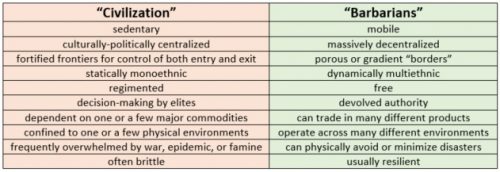Some books I’ve read during the year and consider very worthwhile…
Tom Jones and other works, by Henry Fielding. Somehow I had never previously read Fielding (who wrote between 1728 and 1755)…now that I have, I am very impressed. Interesting characters, clever and intricate plotting, many passages that are very funny, and the author, I think, shows great insight into human behavior. (In addition to his literary efforts, Fielding served as a magistrate and is credited with establishing London’s first professional police force, popularly known as the Bow Street Runners.)
Fielding sometimes breaks out of the narrative, most notably in Tom Jones, and addresses himself directly to the reader. In one rather touching passage, he explains why he has taken the trouble to write the book–certainly for money, he says, but also “with the hopes of charming ages yet to come. Foretel me that some tender maid, whose grandmother is yet unborn, hereafter, when, under the fictitious name of Sophie, she reads the real worth which once existed in my Charlotte, shall from her sympathetic breast send forth the heaving sigh”
In addition to Tom Jones, I’ve also read his Amelia, Joseph Andrews, and the wonderfully-titled An Apology for the Life of Mrs Shamela Andrews. All are IMO well worth reading.
Harmony, by Chicago Grrll Margaret Ball. This is a series, encompassing three books.
With the development of interstellar travel, humanity had the chance for a fresh start. The colonization of a new planet was carried out with the explicit intent to create a society that would avoid the miseries of the past, that would be based on the principle of harmony.
(Think about a society designed from the ground up by someone like Hillary Clinton.) Of course, it works out about as well as utopian projects usually work out.)
For those who don’t fit in to the Harmonious society, there is exile to a colony known as Esilia. Book 1, Insurgents, is focused on the Esilian struggle for independence against the forces of Harmony. Gabrel, a leader of the independence movement, seizes Isovel, daughter of the commander of the invading forces, as hostage.
In Book 2, Awakening, the protagonist Devra is an unlicensed child, who never should have been allowed to be born. In an attempt to overcome the stigma of her very existence, Devra makes a point of extreme conformity to Harmony’s rules and expectations. But when one of her students is threatened with ‘medical rehabilitation,’ she finds herself questioning her role as a good Harmony citizen.
In Book 3, Survivors, Harmony’s society is approaching collapse. Jillian, a soap opera star in holodramas, has been largely insulated from the impoverishment that is afflicting so many. When a farm boy named Ruven comes to the city to plead for better terms for his dairy cooperative, she uses her acting skills to teach him how to appeal to the emotions as well as to logical thought.
A Balcony in the Forest, by Julian Gracq. In preparing for the German onslaught which actually came in May of 1940, the French general staff made some serious errors. One was to view the heavily-wooded sector of the Ardennes as basically impassible by major forces. Hence, the French did not fortify this sector to anywhere near the level of the Maginot Line sector, further to the southeast; furthermore, the troops sent to hold the Ardennes were mostly what one writer referred to as “class B divisions composed of middle-aged reservists.”
The protagonist of Gracq’s novel is one of these middle-aged reservists, a dreamy sort of man named Lieutenant Grange, who is assigned to command a blockhouse and a small group of soldiers. It is the period of the ‘phony war’, and Grange has a hard time believing that the war will ever become hot. He finds that he loves the Ardennes, though, and his assignment gives him a great deal of satisfaction–especially when he meets a local girl named Mona and things develop rapidly between them.
A strange, almost surrealistic book, with some beautiful descriptive writing. A commenter at Goodreads remarked that the Ardennes is portrayed as “a mythic forest, by definition unreal, must also be indifferent to human beings- eternity doesn’t bother itself with trifles- and Grange is but a reclusive watchman on this magic mountain during this staggeringly brief period of months closing shut like the jaws of a wolf devouring a faun.”
Available at Amazon, both Kindle and paperback.
This post to be continued.
